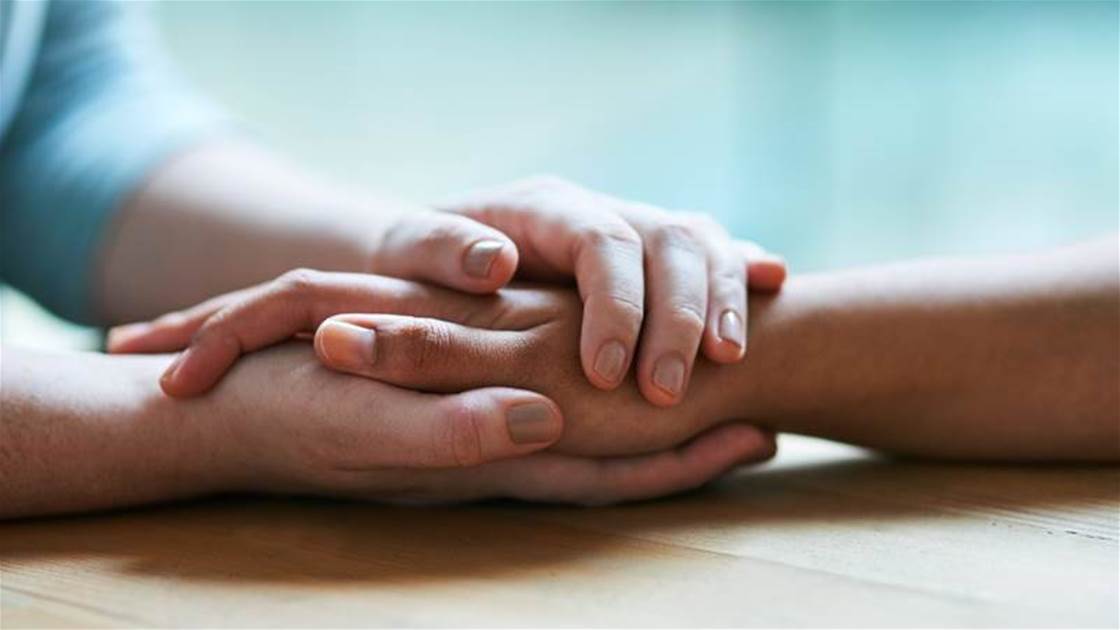"Sorry, but I just can't get on the plane. I just... can't."
We didn't go.
In 16 years of marriage, I've sent our regards and our regrets to dozens of birthday parties, family get-togethers, and at least half a dozen weddings. He doesn't forbid me from going, but I end up having to pick and choose. I usually decline events—like a wedding clear across the country—that would keep me away for days at a time. But I often take our young daughter to fairs and festivals on my own, leaving Daddy at home alone on sunny spring Saturdays while he waits for us to return with bags full of fresh farmers' market vegies (me) and a face painted like a butterfly (her).
MORE: 10 Women Share What Depression Really Feels Like
Our daughter usually asks him to come along, and I do too, but I don't plead or beg anymore.
"It's OK," I tell him. "I get it."
I do.
My husband has depression and anxiety. He doesn't ride in airplanes. He doesn't like parades or farmers' market crowds. He doesn't laugh often; our 20-year-old babysitter likes to say we've broken him on the rare occasion that he cracks a smile.
I get it because I'm like him in many ways. I was diagnosed with depression just a year after him and a year before we got married. We walked into our wedding with our dual diagnoses and our treatment plans set. We knew each other's triggers, and we thought doing battle with the same monsters would make things easier. We wouldn't have to do it alone!
It turns out even two people with anxiety and depression can be hopelessly idealistic. The reality is although our stories would be slotted in side by side on pages of the DSM V, our coping strategies have always been wildly different.
MORE: 5 Of The Best Meditation Apps To Try Now
He treats our home like a burrow, a small hole in the world where he can surround himself with just the people and things he loves most. He'll potter around the kitchen on a Saturday afternoon, throwing together a red sauce and baking a cheesecake. If it weren't for the realities of being a grown-up with a child to help raise and bills to pay, he would be perfectly content to sit in the same chair for the entire weekend, binge-watching a Netflix series, just the three of us. If he ventures outside, it's to kick a soccer ball around the yard with our daughter or perhaps venture across the street with her for some street hockey.
He isn't reclusive—he doesn't shut down and refuse to leave our home for work or the grocery store—but if he doesn't feel he's got a good reason to leave, he doesn't. For him it's simple.
 PHOTOSTOCK-ISRAEL/GETTY IMAGES
PHOTOSTOCK-ISRAEL/GETTY IMAGES
I married my husband for that simplicity. He didn't play games or take unnecessary (OK, really any) risks.
I've long since accepted that I will likely spend the rest of my life on antidepressants, but the comfort of our easy friendship and love works in tandem with my SSRIs. I feel safe in his arms and more comfortable with him than I've ever felt with anyone. When I'm feeling particularly down and out, he pulls me out of bed and props me up. His encouragement is often what keeps me charging forward at work and on odd mornings when I wake up struggling to find purpose. I, in turn, am one of the few people he's let into his small circle, one of the few who he can spend days with.
MORE: How To Fight Depression With Your Diet
It's marriage-affirming, even flattering at times, to know that someone with anxiety finds your presence comforting. But other times—oftentimes—being married to someone with anxiety is like struggling to find your breath while he sits beside you taking deep breaths from an oxygen mask. It would be cruel to rip it from him, but if I could just take a drag or two, I'd feel a lot better.
This is where our two conditions meet and do battle and where I struggle to do justice to my marriage, myself, and our daughter. She and I are joiners, adventurers. We might head to a parade with simple plans to watch the crowd go by, only to find ourselves climbing onto a float and waving wildly at our "fans". We are loud and enthusiastic, dancing in your seats at the hockey game or volunteering to douse runners with water at the charity race kinds of people.
She's 11. For her it's fun. For me it's catharsis. Like Ariel in The Little Mermaid, I need to be where the people are. In a crowd, I turn myself off. I'm not overthinking my way through the week's events. (Did we pay the mortgage? Do we have enough milk? Did I miss the due date for the elementary school chocolate order form?). And I'm not sleeping all day or sliding into tired old habits. I find strength in these things, in part, because I'm proving to myself that I'm stronger than my depression. I'm chatting about the weather or having a water balloon fight in the backyard with my daughter and my best friend's son. I'm alive and whole.
MORE: This Is How Happy Couples Deal With The Most Common Fights
Then I go home, to our quiet home where there are no games and there are no risks. I go home because I don't last too long out there without him.









